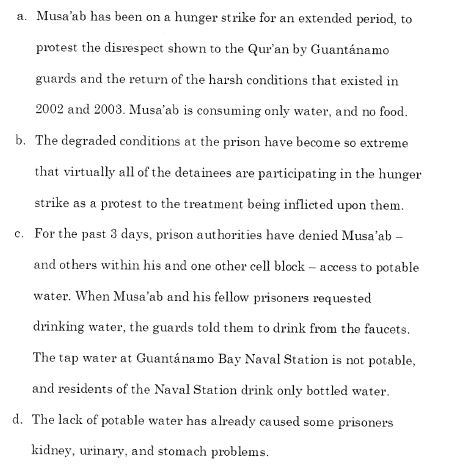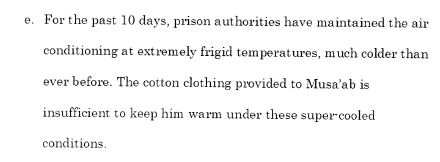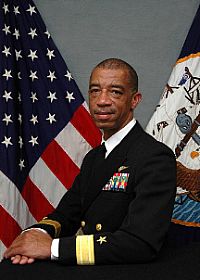Ben Wittes, an employee of the Brookings think tank, had this to say about my post showing how disingenuous his buddy Jonathan Fredman’s defense of his statements at Gitmo in 2002 is.
Responding to her in detail is difficult, because her account is so weedy;
His entire piece is worth reading, because in key ways it reinforces my argument (though Wittes, the think tank employee, appears not to understand that). His refutation consists of:
- 189 words effectively saying, “sure I wanted to debate interrogation [sic] history that is a decade old two days ago, but now that you’re presenting facts about my buddy I find it boring.”
- 444 words admitting that Fredman did not specifically disavow the quote that Wittes claims he did, and shifting the emphasis slightly on what he says Fredman’s memo was disavowing.
- 1238 words that at times seems to miss the entire headline of my post–which is that Fredman’s actions prove his memo is false–but ultimately seems to accept all the evidence that it is false, though he finds that uninteresting.
Wittes claims Fredman tried to refute his perception comment, not his dead detainee comment
Wittes deems it “bizarre” that I would expect a lawyer to deny a statement explicitly if he were really denying it, especially if he were going to spend 6 pages purportedly denying it. That, in spite of that fact that he admits that Carl Levin and other Senators at the hearing to which Fredman responded referenced a number of other things Fredman allegedly said at the meeting.
Yes, Levin and other senators also quoted a few other alleged Fredman comments from the minutes.
As I noted in my post, several of the things Fredman allegedly said at the Gitmo meeting — claiming the CIA decided which torture techniques to use for most techniques and discussing the use of extreme weather in torture — would have been far more legally troubling in light of Gul Rahman’s subsequent death, by freezing to death after CIA used unapproved water dousing on him, than the “if a detainee dies” comment.
And the “perception … detainee dies” wasn’t even the first quote from Fredman that Levin mentioned at the hearing (which Ben obscures with an ellipsis). First, he raised Fredman’s alleged support for exploiting phobias, including insects which — in 2008 we didn’t know but we now do — appears in the list of techniques approved by DOJ. He also raised Fredman’s description of how waterboarding worked before the “detainee dies” comment.
Claire McCaskill (and Hillary Clinton) focused on Fredman’s alleged comment about hiding detainees from ICRC. McCaskill also raised Fredman’s alleged comment that videotaping interrogations would be ugly (the latter of which, considering someone in Fredman’s immediate vicinity altered the record of a Congressional briefing just as CIA decided to destroy their tapes, might have been particularly damning given the then ongoing John Durham investigation into that destruction). So in fact, the focus on Fredman at the hearing wasn’t at all exclusively on that detainee dies comment, nor was it the most legally dangerous one for him.
But Ben insists — and he may know this from talking to Fredman personally — that Fredman wrote the memo specifically in response to these comments from Levin, and therefore we shouldn’t expect him to specify that directly:
And Mr. Fredman presented the following disturbing perspective [on] our legal obligations under our anti-torture laws, saying, quote, “It is basically subject to perception. If the detainee dies, you’re doing it wrong.” “If the detainee dies, you’re doing it wrong.” How on earth did we get to the point where a senior U.S. Government lawyer would say that whether or not an interrogation technique is torture is, quote, “subject to perception,” and that, if, quote, “the detainee dies, you’re doing it wrong”?
Look, however, at how Wittes summarizes Fredman’s response:
In that memo, Fredman described the comments he provided at the Guantanamo meeting. And he described them in specific response to these alleged quotations. Far from saying that torture is “subject to perception,” as he described his remarks, he “emphasized that all interrogation practices and legal guidance must not be based on anyone’s subjective perception; rather, they must be based upon definitive and binding legal analysis from the Department of Justice.” And he then went on to flatly deny the statements attributed to him: “I did not say the obscene things that were falsely attributed to me at the Senate hearing. . . . The so-called minutes misstate the substance, content, and meaning of my remarks.” His denial could hardly be clearer. [my emphasis]
Note, first of all, that Wittes uses the plural, “quotations,” in this passage. That’s interesting, because at least some of the journalists Ben wants to shut up shut up shut up used the “if the detainee dies, you’re doing it wrong” quotation without the “subject to perception” bit. The two sentences appear together in the notes and I agree they can be treated as one, but the truly shocking quote — the one Ben wants everyone to stop using — is the “if the detainee dies” one, which is utterly consistent with everything Fredman says in his disingenuous memo, which says repeatedly that detainee deaths are bad things.
More interesting though is that Wittes lays out very clearly what he says Fredman was refuting: that he said torture is subject to perception. And his response to that — Ben’s evidence the memo should be accepted as refutation of that comment — is Fredman’s claim that all torture must be based on definitive and binding legal analysis from DOJ.
Wittes seems to accept that Fredman did not base torture on definitive and binding legal analysis from DOJ
Here’s where Ben’s professed difficulty with weeds seems to have utterly sunk his efforts to defend his buddy. Because if it can be proved that Fredman did not, in his actions, ensure that torture be limited by definitive and binding legal analysis from DOJ, then it is clear that his memo is false, a lie, issued to refute some very damning evidence made worse by subsequent events, but not in any way an honest reflection of what Fredman believed or how he acted.
For any think tank employees or others who have difficulty with weeds, here’s what the evidence I laid out showed:
- The torturers started using sleep deprivation, with the approval of Fredman’s office, months before DOJ got involved.
- When the torturers exceeded Fredman’s office’s original limits on sleep deprivation, his office just retroactively authorized what they had already done, apparently without any input from DOJ.
- When Fredman translated DOJ’s guidance for the Abu Zubaydah torturers, he used not the definitive and binding legal analysis from DOJ, but instead a fax John Yoo had sent, one he purportedly wrote without the input or approval of Jay Bybee.
- After a detainee died after being subjected to a torture technique that had not been approved by DOJ, CIA’s lawyers — including Fredman’s office — tried to snooker OLC into accepting that another document crafted with Yoo outside official channels constituted “definitive and binding legal analysis.” That effort failed.
There are at least four pieces of evidence in the public record that Fredman authorized torture in ways outside of DOJ’s definitive and binding legal analysis. Now, Ben doesn’t refute a single one of these points. Indeed, he actually uses the Yoo fax in his response (he doesn’t, however, mention the retroactive effort to snooker OLC, perhaps because his blogmate was involved in refusing to be snookered).
From which I take it that Ben accepts that Fredman’s office, and Fredman personally, repeatedly found ways around relying on the definitive and binding legal analysis DOJ developed. Read more →



